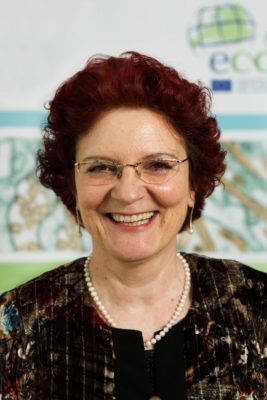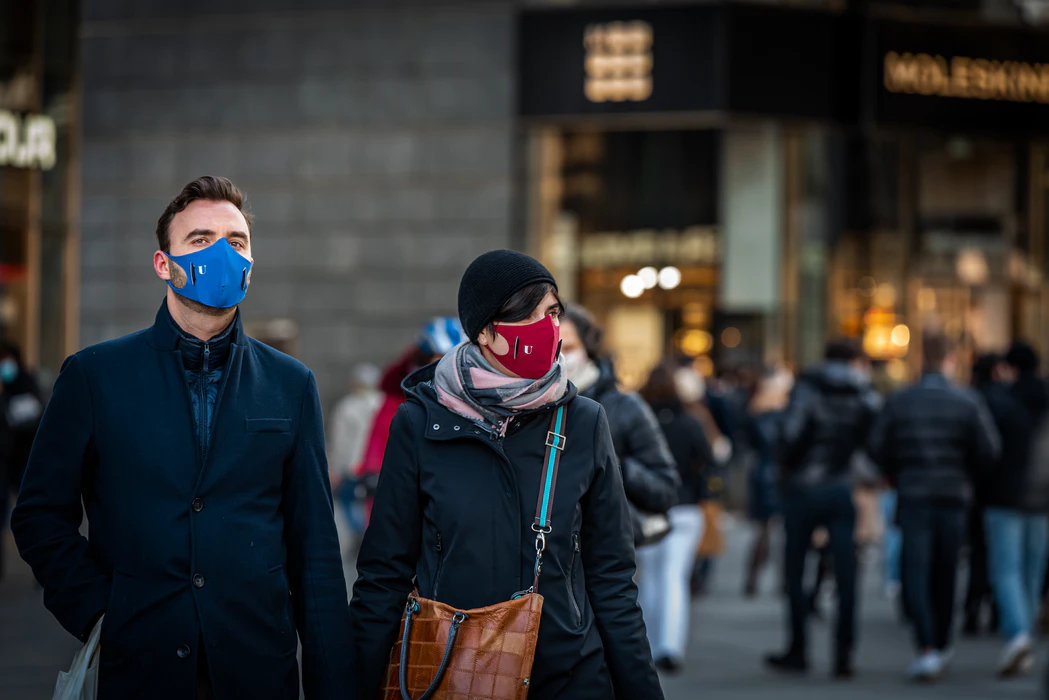- ‘Vaccines will not automatically end the pandemic’
- ECDC advising leaders on readiness for reintroducing restrictions if needed
- Vulnerable are vaccinated; time to step up protection of wider population
- Health professionals should be vaccine champions
- Routine immunisation: ‘We must ensure no child is left behind’
The European Centre for Disease Prevention & Control (ECDC) was founded in the aftermath of the SARS epidemic. Its mission was to boost Europe’s ability to fight infectious diseases by providing technical and scientific advice, just as its US counterpart, the CDC, does.

During the pandemic, the agency has played a role in collecting data and advising governments while the European Commission took charge of buying vaccines for all EU Member States, and national health authorities remain responsible for delivering vaccines.
Now, with more than 130 million doses of COVID-19 vaccines administered across Europe, and millions more delivered daily, the ECDC is keen to see an accelerated vaccine rollout. At the same time, there are concerns that routine immunisation programmes must be protected despite the challenges posed by the pandemic.
While the pandemic is far from over, some are reflecting on how the EU has responded to the crisis. The question of whether the ECDC’s powers should be strengthened in the wake of the COVID-19 pandemic will be considered as part of a wider discussion on building a European Health Union. This will include the creation of a new body: the Health Emergency Preparedness & Response Authority (HERA).
With some of these issues in mind, we asked ECDC Director Dr Andrea Ammon for her reflections on the agency’s role in managing the pandemic.
Interview
After a slow start, Europe’s COVID-19 vaccination programmes are gathering pace. What are the features of successful programmes that have helped some Member States do better than others?
Vaccination policies are within the remit of EU Member States. Policies vary considerably between countries: type of vaccines used, number of doses administered and timing. ECDC has been very active in the vaccination area and has offered multiple options for response to [EU] Member States.
We believe that being proactive, facilitating access to information and scientific expertise, coordination, and transparency can maintain and strengthen the position of national and European health authorities as trusted sources of scientific information.
With over 130 million doses of COVID-19 vaccines administered in the European Union, we have made important steps to protect vulnerable groups and frontline workers. Vaccination rollout must now be accelerated to protect the entire population because nobody is safe until everyone is safe.

Are you concerned that COVID-19 vaccine hesitancy will become a bigger challenge in younger age groups? What can ECDC do to help?
We see that misinformation and disinformation around vaccines are circulating in the internet and social media. This can contribute to uncertainty and affect the public’s trust in vaccines. It happens also with existing vaccines, the public faces a real challenge in sifting scientific facts from fiction and understanding which information to trust and which to ignore. A lack of confidence in the new vaccines can undermine the expectations that it will help to curb the pandemic.
We need healthcare professionals to be the champions of vaccination to raise vaccine confidence. With the lives lost during the pandemic and the devastating socio-economic consequences across the world, high hopes are placed on the availability – sooner than later – of safe and effective vaccines that can hopefully contribute to address the pandemic.
In addition, we also need to address the expectations of people regarding the new vaccines. Vaccines will not automatically lead to the end of the pandemic. As vaccines start to be deployed, other measures to control the pandemic will still need to continue to be in place for some time.
What do you think will be the legacy of COVID-19 vaccine programmes for routine immunisation uptake? Might it pave the way for a more life-course approach to immunisation?
European Immunization Week is also an occasion to remember the great importance of routine immunization. While the spotlight is now on COVID-19 vaccination, all countries must continue sustained efforts to ensure that no child is left behind from routine immunization.
Vaccines work and they save lives! This is a reality that has fully impacted the last decades of public health and has resulted in a decreased burden of vaccine-preventable diseases, and healthier generations.

How do you reflect on the ECDC’s role in tackling the pandemic? Based on the experience of this pandemic, how do you think the ECDC might change to help Europe fight future pandemics?
ECDC as an organisation has been at the forefront of the EU’s work to address the coronavirus pandemic. Indeed, the very existence of ECDC is a testimony to learning from public health emergencies – as it was established 15 years ago in the aftermath of the SARS outbreak. ECDC has provided timely data, risk assessments, and scientific guidance to help inform decision-makers in the [EU] Member States and the European Commission, in accordance with the current health security architecture in the EU.
The question whether the EU and ECDC’s competences should be strengthened in future is currently discussed based on the European Commission proposals for a Health Union. The initiative is one of the first steps towards building the European health union announced by President Ursula von der Leyen in her State of the Union address.

Are you optimistic about Europe’s capacity to control the pandemic this year?
The current pandemic has taught us of the need to better protect the most vulnerable members of society, balancing the potential benefit of physical distancing measures of long duration with the huge ramifications of negative societal impact.
I think future preparedness activities should focus on strengthening healthcare systems, by applying lessons learned from the current crisis and planning for a potential resurgence in COVID-19 cases.
We have outlined for the Member States what preparedness priorities to consider, including the need to establish protocols to quickly re-introduce measures if needed and the need to secure health system capacities. Protocols for re-introduction of measures should be accompanied by community engagement strategies supported by strong risk communication, particularly for vulnerable groups.
We have provided protocols for in-/after-action reviews to learn lessons. After this emergency, countries will need to revise and update their general pandemic preparedness plans based on the lessons learned.





Pingback
August 19th, 2021
[…] leading NGOs and the head of the European Centre of Disease Prevention & Control (ECDC). In short, Vaccines Today has become an established voice in the online vaccine communication […]